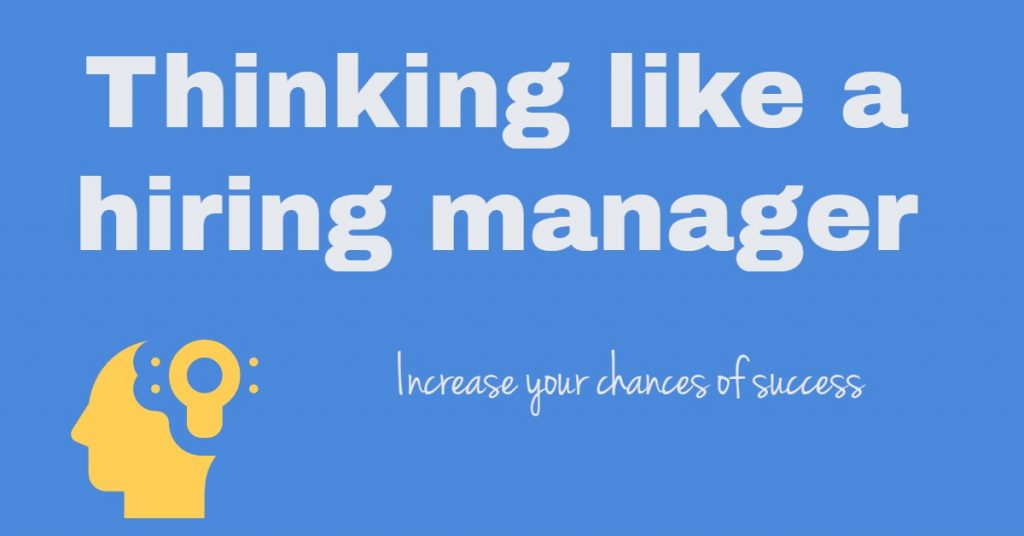Thinking like a hiring manager
Lesson Progress
0% Complete

The hiring manager is usually the person who writes the job description and makes the final hiring decision. They will usually be more qualified to understand your skill set for a role as they are the person you would be reporting to and most will put a strong emphasis on fit for the team/company.
Hiring Manager’s want to be convinced:
- You can do the job, they’re more likely they will grill you harder on the skills and experience you can offer for the position.
- You want the job. This is important for them to know as they will be investing their time and budget getting you on board so don’t want to risk someone leaving early in the role and put them back to where they started.
- You will fit in with their team. Most people with a positive and flexible attitude can usually be a fit. Although luck can play a part in this as recruiting I’ve had candidates that have done everything right but lost out for the balance in their team sometimes like being everyone else e.g the hiring manager wanting someone a touch quieter in personality as everyone in the team were already loud personalities.
- You are coach able. Lots of good candidates miss out on positions because while they are good at what they do the concern is will they be flexible enough to adapt to a new system that fits with the company. Hiring managers want someone is coach able and can learn their or the organisations way of doing things.
- They can trust you. If you don’t know something don’t try and blag it. That is how disasters happen. So someone who doesn’t know an answer and admits it straight up is usually a lot more attractive than someone who tries to blag an answer.
Tips for impressing a hiring manager.
- Use the job description to identify potential questions they may ask and practice the answers you will give.
- Have a positive and flexible attitude towards your work.
- Look for objections they may have about your application and be prepared to overcome them in the interview.
- Tell them you want the job either at the end of the interview or with a personal email after the interview.
- Ask questions about the role. This shows you are interested.
- Show enthusiasm. Body language is important. Make sure your body is telling the same story as your mouth.
- Be personable. The ability to relate with people and build rapport can be the biggest
- Research the organisation you are interviewing with as much as possible. No research you will be very lucky to be offered the role. Find something about the organisation the hiring manager doesn’t know and